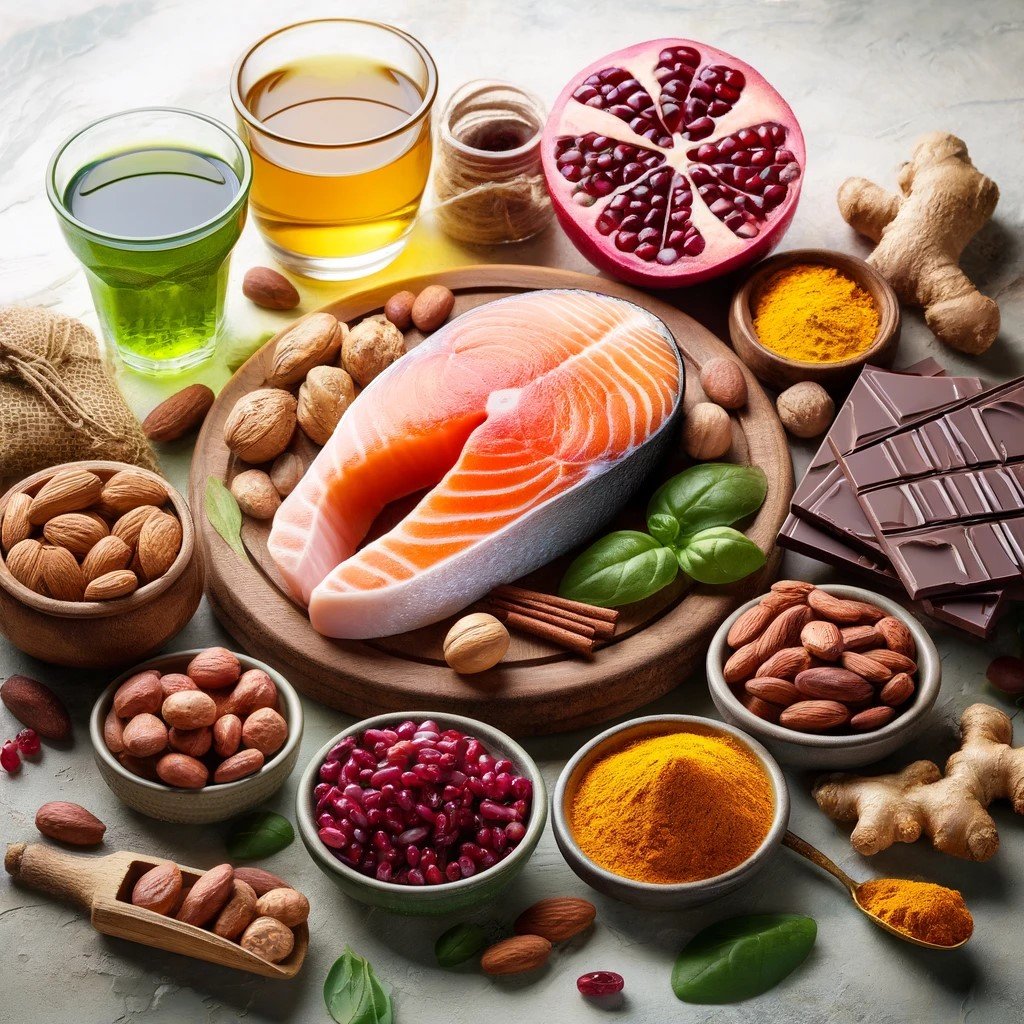Cholesterol & Menopause: Natural Management Strategies
Managing Cholesterol Naturally: A Guide for Women Navigating Menopause and Midlife
As women transition through menopause and midlife, understanding the nuanced shifts in cholesterol levels becomes paramount. This period is marked by significant hormonal changes, including fluctuations in oestrogen, progesterone, and testosterone levels, which can all influence cholesterol management. This guide delves into these hormonal shifts and offers practical dietary advice for maintaining heart health during this transformative time.
Hormonal Changes and Their Impact on Cholesterol
During menopause and midlife, women experience a decline in oestrogen and progesterone levels, while testosterone levels can vary. These hormonal changes have direct and indirect effects on cholesterol levels:
Oestrogen: Traditionally helps to maintain higher levels of 'good' HDL cholesterol and lower levels of 'bad' LDL cholesterol. As oestrogen levels drop during menopause, LDL cholesterol can increase, and HDL cholesterol may decrease, elevating heart disease risk.
Progesterone: Has a less direct role in cholesterol management but influences the overall balance of hormones. Changes in progesterone levels can impact body weight and fat distribution, indirectly affecting cholesterol levels.
Testosterone: Although primarily considered a male hormone, testosterone affects women's muscle mass and fat distribution, influencing cholesterol levels. Variations in testosterone during menopause can impact heart health.
The Body's Cholesterol Production
Interestingly, the body produces most of the cholesterol it needs, with about 75-80% generated by the liver and other cells, while only 20-25% comes from dietary sources. This highlights the importance of internal regulation and the impact of hormonal balance on cholesterol levels.
For Cholesterol Management
Balancing your diet is crucial for managing cholesterol levels effectively. Here’s a practical list to guide your choices:
Choose to Eat Less of These:
Sugars and ultra processed foods: These can spike blood sugar levels and contribute to weight gain, affecting cholesterol.
Trans fats: Found in many processed foods, they raise LDL cholesterol and lower HDL cholesterol.
Processed meats: High in saturated fats, which can increase cholesterol levels.
Excessive amounts of omega-6 fatty acids: While necessary in small amounts, too much can contribute to inflammation and negatively impact cholesterol.
Choose to Eat More of These:
Cherries and berries: Rich in antioxidants, they can help reduce inflammation and improve cholesterol levels.
Grass-fed beef: A healthier alternative to grain-fed, containing more omega-3 fatty acids.
Vegetables (and some fruits): High in fibre and nutrients, they can help lower cholesterol.
Wild salmon: A fantastic source of omega-3 fatty acids, known for their heart-healthy benefits.
Nuts and beans: Great for heart health due to their fibre and healthy fat content.
Dark chocolate: In moderation, it’s rich in antioxidants that can support heart health.
Turmeric: Contains curcumin, which has anti-inflammatory properties and can aid in cholesterol management.
Pomegranate juice: Studies suggest it can improve cholesterol profiles by reducing arterial plaque.
Green tea: Its antioxidants can help lower LDL cholesterol and improve heart health.
Olive oil: Rich in monounsaturated fats, it can help reduce LDL cholesterol levels.
Garlic: Known for its potential to lower cholesterol and blood pressure.
Incorporating these dietary adjustments can significantly contribute to managing cholesterol levels during menopause and midlife. By understanding the hormonal changes that occur and how they influence cholesterol, alongside making informed dietary choices, women can navigate this phase with confidence and maintain their heart health.
Remember, these lifestyle and dietary changes are part of a holistic approach to wellness. Regular physical activity, stress management, and consulting with healthcare professionals for personalised advice are equally important in maintaining a healthy cholesterol level and overall well-being.
For more insights and tips on thriving during midlife, sign up for my weekly 'Midlife Health Bites'. Dive deeper into wellness and beauty tailored for the unique challenges and opportunities of this vibrant life stage.
Additionally, join my supportive community on Facebook, 'Nourish and Glow: Women's Wellness and Beauty; Midlife, Menopause and Beyond'. It's a space where you can share experiences, seek advice, and find encouragement from women just like you..
Don't forget to download my FREE ebook “7-Day Menopause Reset Meal Plan: Energise Your Brain & Body.’ It’s full of recipes to help you feel great




